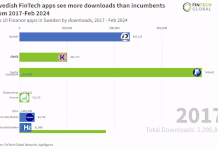The European Banking Authority (EBA) has completed its study of the cost of compliance of European Economic Area (EEA) banks with the supervisory reporting requirements.
In the report, the EBA underlined a range of recommendations that would collectively lead to a possible reduction of EEA bank reporting costs by around 15% to 24%. The EBA stated that most of the recommendations will be implemented as part of its ongoing policy work on strengthening the EU supervisory reporting network.
During the study, the EBA identified 25 recommendations aimed at cutting compliance costs with supervisory reporting requirements that focused primarily on small and non-complex institutions.
According to the EBA, the cost of compliance study focuses on three specific aspects. The first looks to understand the actual reporting costs incurred by EEA banks in relation to supervisory reporting, in particular in relation to the EBA implementing technical standards on supervisory reporting.
The second aspect involves examining the effect of a reduction of some specific reporting requirements on reporting costs and supervisory effectiveness, while the third will look to assess whether reporting costs were proportionate in link with the benefits delivered.
The EBA claims the recommendations will strengthen reporting requirements and processes for all institutions while also retaining the end-user benefits of the single supervisory framework.
The banking authority noted that the recommendations will address four key areas. These areas includes changes to the development process for the EBA reporting framework, changes to the design of EBA supervisory reporting requirements and reporting content, coordination and integration of data requests and reporting requirements and changes to the reporting process with a greater focus on the use of technology.
Furthermore, the EBA remarked that the study also identified the need to remove barriers to the wider adoption of FinTech and RegTech solutions by institutions as well as promote greater digitalisation of the institutions’ internal documents and contracts.
The EBA intends to incorporate the recommendations into its work programme and implement them as part of its ongoing work.
The EBA claims the analysis for the study drew on ‘significant input’ from and interaction with the financial industry. The organisation had sent voluntary questionnaires to all EEA credit institutions and had also interviewed various industry trade bodies and small and non-complex institutions across various member states. The EBA added it also received voluntary case studies that were used in the analysis.
Copyright © 2021 FinTech Global











